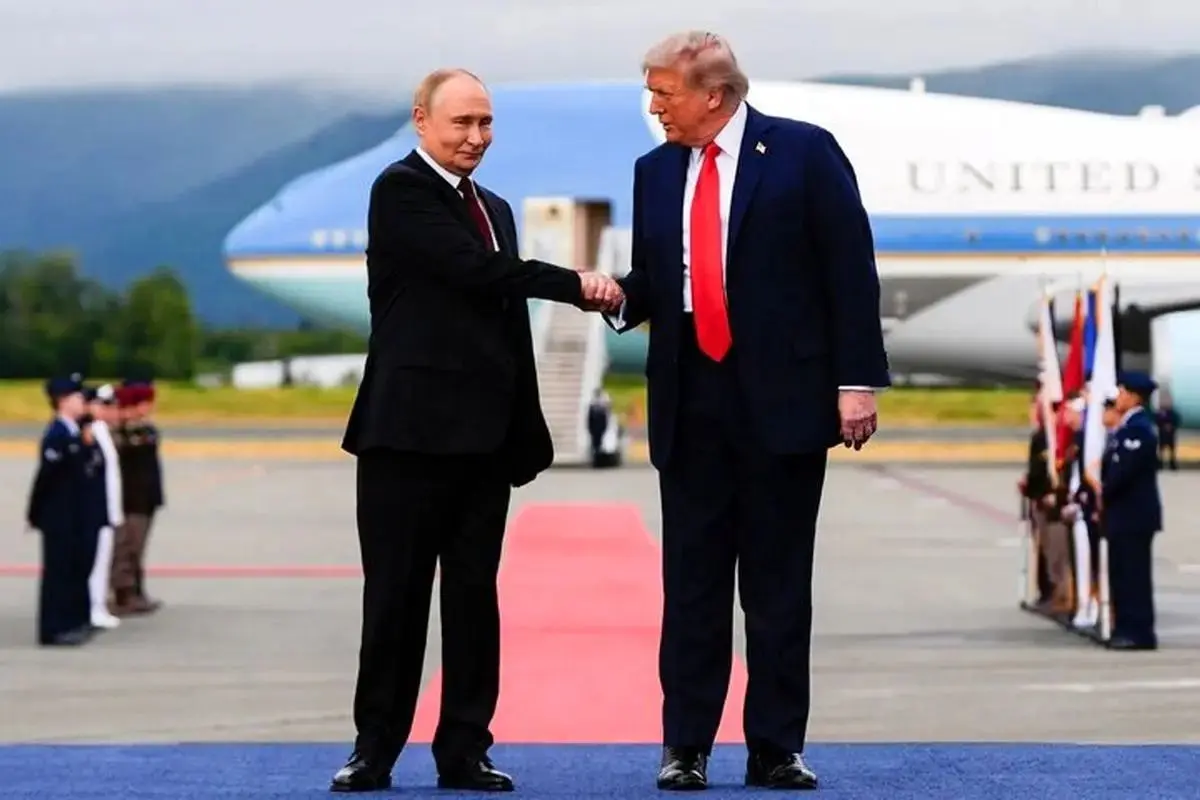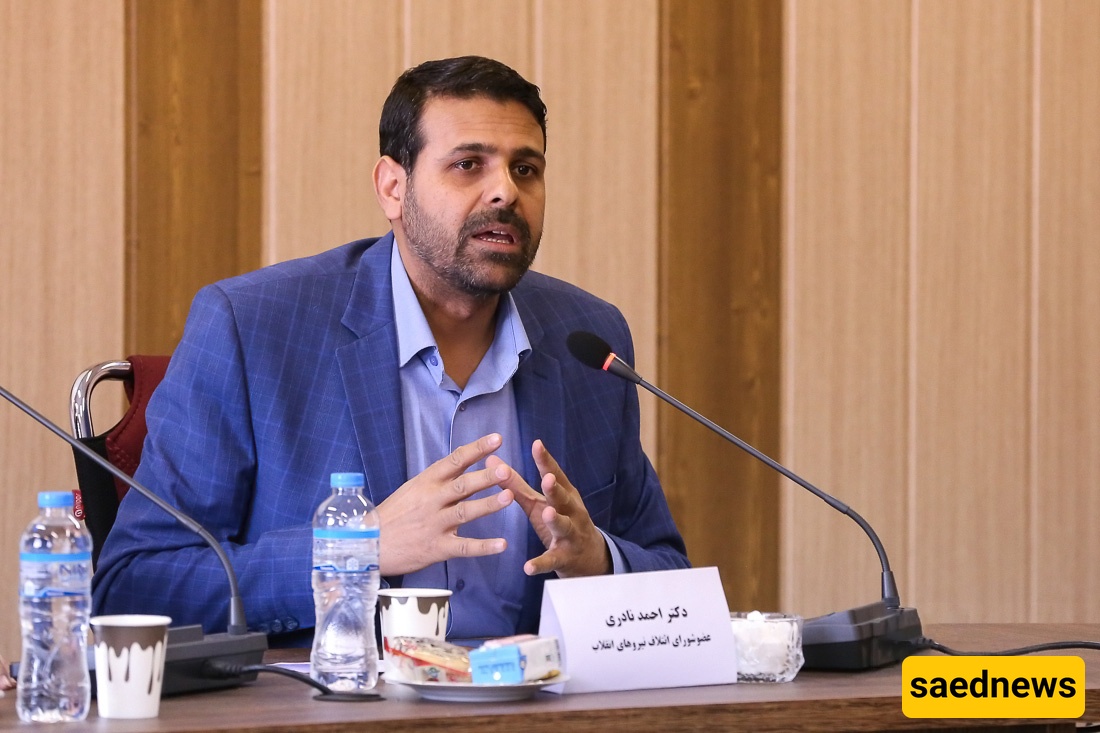SAEDNEWS: The Trump-Putin meeting in Alaska ended without a formal agreement on Ukraine; Iran was not on the agenda, and ongoing negotiations will require concessions for lasting peace.

According to Saed News qouting ILNA, Ahmad Naderi, commenting on the meeting between the U.S. and Russian presidents in Alaska and its impact on Iran, said that expectations for an immediate agreement on the Ukraine war were not met at the recent Trump-Putin summit.

The parliamentarian recalled that as this was the first meeting between the U.S. and Russian presidents since Moscow's invasion of Kyiv in February 2022, it lasted over three hours and included key advisors such as Rubio for the U.S. and Lavrov for Russia. However, the outcome, according to both sides, was largely a “constructive” dialogue without tangible achievements, highlighting the deep complexities in the negotiations.
He noted that despite the media hype before the summit, which Trump described as “a major step toward peace,” no official ceasefire or even preliminary framework was announced. Trump spoke of “great progress” at the joint press conference but gave no specific details, while Putin emphasized “useful discussions” but reiterated that Russia seeks “security guarantees,” including the full withdrawal of Ukrainian forces from occupied regions such as Donbas and Luhansk.
Naderi emphasized that this lack of progress stems from fundamental disagreements, including Russia's insistence on maintaining its battlefield gains, while the U.S. seeks an agreement that preserves at least the appearance of a Western victory. He noted that such meetings are often more symbolic than practical, and this one was no exception. The summit focused more on hearing positions than resolving issues, highlighting security risks.
He pointed to Europe and Ukrainian President Zelensky as major obstacles to an agreement. One key point after the summit was Trump’s emphasis on negotiating with Europe and Zelensky. Trump announced that he would meet Zelensky on Monday, August 18, and even proposed a trilateral meeting with Putin. This indicates that the main obstacle is not only Russia but also Kyiv and its European allies.
Naderi added that Zelensky, absent from the Trump-Putin meeting, had previously labeled any territorial concession a “violation of Ukraine’s constitution,” and European leaders like Macron insist on Ukraine’s territorial integrity. This position, rooted in NATO’s security concerns, puts Trump in a difficult spot. Europe does not want to be seen as losing, but the reality on the ground, with Russia controlling about 19% of Ukraine, shows that an agreement is unlikely without concessions. Trump currently focuses on “land swaps,” which could pressure Zelensky but risks weakening Western support for Kyiv.
Regarding Russia’s stance, Naderi noted that Russia feels militarily victorious and is unwilling to make major concessions. Russia sees itself in a superior position and celebrated the summit as a diplomatic victory. Putin, after returning to Moscow, emphasized eliminating the causes of the war in a televised meeting with officials, showing no signs of softening.
From a realistic perspective, Russia, with control over key regions and a resilient economy against sanctions, sees no reason to retreat. This “strategic hardline” approach stems from Moscow’s military superiority in eastern fronts. However, it could also be interpreted as inflexibility that may lead to further isolation, especially if Trump imposes secondary sanctions. Naderi believes Putin used the summit to buy time, while Trump sought a quick domestic political win. This unwillingness to concede could be seen as anti-peace and increase international pressure on Russia.
On Iran, Naderi emphasized that the topic was not part of the Trump-Putin agenda. Contrary to speculation in anti-regime media, Iran was not discussed; the summit focused entirely on Ukraine. Trump mentioned regional issues separately but did not link them to the summit. Nevertheless, if negotiations continue, issues related to Iran could be raised later, but currently there is no sign of this, offering Iran an opportunity for independent diplomacy.
Despite no immediate progress, signs of ongoing diplomacy exist. Trump said he is ready to meet Putin again and invited Zelensky, potentially leading to a trilateral summit next week. Putin also invited Trump to Moscow, indicating a desire to maintain dialogue channels.
If the next meeting takes place in Russia, as Trump showcased U.S. military power with F-22 fighters and B-2 bombers over Alaska, Russia may respond with its own display, such as strategic flights or maneuvers near the summit site, to maintain the power balance.
Naderi concluded that ongoing U.S.-Russia negotiations on Ukraine will focus on sustainable peace rather than a temporary ceasefire, requiring concessions from all sides. Overall, the summit was more a diplomatic exercise than a milestone, highlighting deep challenges in resolving the Ukraine crisis. Russia, feeling militarily superior, refuses to retreat, while the West, especially Europe, insists on principles. If Trump can convince Zelensky and Europe, progress may occur; otherwise, significant breakthroughs remain unlikely.

